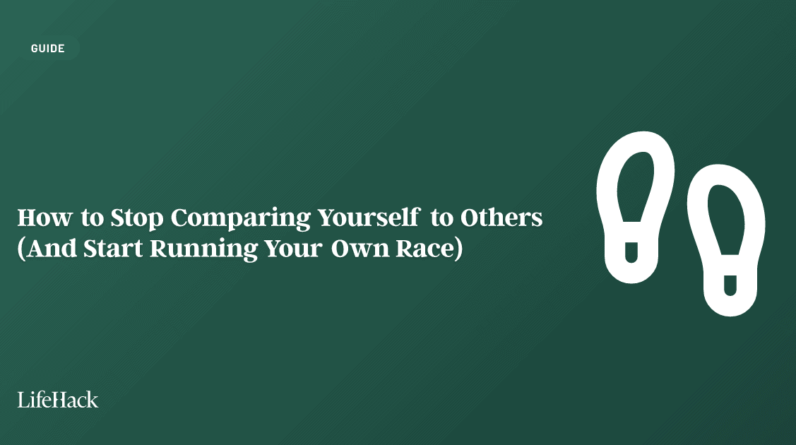
It’s amazing how often I have seen something in the past without really seeing it. Can you relate? Things you don’t realize or see until that “ah ha!” moment long after.
Luckily, I’ve been able to do more things in my own time over the past few years… and it’s been a learning experience. Something as simple as stopping to enjoy a sunset from start to finish was a standout moment during a trip to Mexico.
Of course, I had seen the sunset in fragments or noticed it as I did something else. This was my first time fully enveloped in it from dusk to night.
Now, I unapologetically take my time to get to know a neighborhood or smaller area when I travel… instead of worrying about getting around the entire city to show off photos of the experience.
This kind of slowing down isn’t just applicable to travel; it can be done in all different aspects of life. So, what does slowing down mean?
What Does Slowing Down Mean?
Slowing down means taking the time to observe, learn, and appreciate things without feeling rushed. Whether with a task or activity, you take your time to take in the details of everything happening around you.
You become mindful of your environment as well as yourself.
It can be as simple as waking up earlier and having some quiet time to yourself, or it can be going for a leisurely walk and taking in the beauty of nature. It’s about pausing before taking action and ensuring that your decisions are thought out and meaningful.
Why Is Slowing Down Important?
Slowing down is essential because it allows us to pause, appreciate, and connect. It helps us to enjoy life more while also reducing stress levels.
We can better understand our thoughts and feelings when we step back and slow down. We can also be honest about what we need or want in certain situations and make our best decisions.
Slowing down enables us to be more in tune with our emotions and better handle difficult or uncomfortable situations.
We can also be present in our interactions with others. Slowing down enables us to listen to what someone is saying and understand the message they are trying to convey. This helps foster meaningful relationships and connections with people in our lives.
How Do I Know It’s Time for Me to Consider Slowing Down?
A few signs may indicate it’s time for you to consider slowing down.
First, if you constantly rush from one task or commitment to the next without taking any breaks, it’s probably a good idea to step back and re-evaluate. This can indicate that you’re overcommitting and not taking enough time.
Another sign is if your mind is constantly racing, or you have difficulty sleeping or concentrating. These could be signs that your stress levels are too high, and it’s time to take a step back and slow down. Taking a break will benefit your sleep, energy, and overall mood.
Finally, if you feel like you’re just going through the motions or emotionally drained, it might be time to consider slowing down and taking some much-needed time. You won’t be able to be there for others if you’re not taking care of yourself.
17 Essential Rules for Slowing Down to Enjoy Life More
1. Set Aside Time for Yourself
Take at least 15-20 minutes every day to relax and clear your mind. This can mean simply sitting in a quiet place without distractions or engaging in an activity that helps reduce stress, like yoga, meditation, or journaling.
You can also set aside a whole day or weekend to do something you enjoy, like reading a book or hiking. Once you are in a period of alone time, stay committed to it! Don’t interrupt your alone time to answer emails or do tasks that can wait until later.
2. Prioritize Your Activities
Identify what activities are essential and focus on them first. Then, if you have time, move on to less important activities that can be done later. This can help prevent you from feeling overwhelmed or overbooked.
Decide your priorities, and don’t let others determine what you should be doing. You don’t have to do everything or please everyone; it’s okay to say no and take time to do what’s important to you. To make things easier, try keeping a list of tasks to focus on for the day or week.
3. Disconnect from Social Media
Take a break from your social media accounts, even just a few days. It’s ok not to know every viral TikTok for a while. This will help you break away from the constant buzzing and notifications that come with being connected at all times. This can allow you to reset and reconnect with yourself and the physical world.
So many people get caught up in Facebook likes, retweets, and email notifications that they forget to focus on themselves. Taking time away from your digital world can help you appreciate the present moment and reconnect with the people around you.
Social media can also draw people into drama or negative conversations, so taking a break can help refocus your energy on something more positive and worthwhile.
4. Take Time to Connect with Nature
One of the best things I do for stress is to take a walk somewhere in nature -the beach, a forest, a lake,.etc. Spending time outdoors is a great way to disconnect from the stresses of everyday life.
After all, how can one stress out when cute birds give you a free concert or you can hear the sounds of waves crashing into the shore? It’s hard to feel rushed when surrounded by nature and its calming presence.
Research has shown that being outdoors can reduce stress and improve mood and focus. So, if you’re feeling overwhelmed or anxious, take the time to enjoy a bit of nature and see how it can help you.
Going outside is also a great way to appreciate the beauty of nature and take in some much-needed Vitamin D from the sun. Nature can give you peace and calm, so take advantage of it and try to go as often as possible.
5. Pay Attention to Your Body
If your body tells you to slow down, it’s time to take a break. When you push yourself too hard, your body can start showing signs that it needs more rest. This could mean getting tired more easily, having trouble focusing, or feeling general physical pain.
Be aware of your body’s needs and listen to it. If you find yourself needing more rest than usual, take a break and get some sleep. Don’t hesitate to take a nap in the middle of the day – hey, cats do it all the time!
6. Allow Yourself to Dream
Spend some time each day dreaming, thinking, and planning. Visualize what it would be like to have the life you want and the things you would do differently. This can be a great way to recharge your batteries and stay motivated for the future, instead of dwelling on the past or worrying about the present.
Dreams can take various forms; no dream is too small or big. It could be as simple as having a picnic in the park with friends or owning a house on a beach. Get creative and let yourself explore different possibilities.
7. Slow Down Your Eating
Eating quickly can be as bad for your health as eating unhealthy foods. Taking the time to enjoy your meals can help you relax and appreciate your food.
When we rush through our meals, we tend to overeat and miss out on the pleasure of savoring each bite. Eating slowly allows your body to digest food better and enables you to enjoy the experience of eating. As you eat, consider the different spices, textures, sensations, and flavors you are tasting.
8. Make Time for Exercise
Physical activity is an important part of life and keeps your body healthy. While working out when you feel overwhelmed may seem counterintuitive, it can help reduce stress and make you more productive.
When stressed, your body produces hormones that can lead to fatigue and other physical symptoms. Exercise helps to reduce these hormones, so make sure you fit in at least 30 minutes of physical activity each day. That could be going for a jog, yoga, or walking around your neighborhood.
9. Pamper Yourself
Sometimes it is essential to take a break and treat yourself right. Schedule some time for yourself, even if it’s just for a few hours. This could be anything from getting a massage to enjoying your favorite hobby or activity. Anything that helps you relax and de-stress counts!
Different massages exist, such as hot stone, Swedish, and Thai massage. A deep tissue massage is perfect for releasing tension, so it might be worth trying. Or if you prefer something more gentle, an aromatherapy massage might be more up your alley.
10. Spend Time with Loved Ones
Socializing with family and friends can help lift your mood and reduce stress. Spend time with people who make you feel good and remind you of what matters most.
Talking with people you know and trust can help you sort out your thoughts and feelings. It’s also a great way to get different perspectives on any problems. Slow down and reflect on past funny family stories or funny memories you shared with your friends.
11. Get Rid of Clutter
Physical clutter can be overwhelming, so getting rid of things you don’t need or use anymore is essential. Take the time to go through your home, closet, and office and eliminate any unnecessary items.
Once you declutter your space, it will be easier for you to relax and focus on the tasks that you need to get done. It can also help reduce stress and give you more mental space to think clearly.
12. Disconnect from Technology
The first step may be to take a break from social media, as mentioned above. You can also try to limit your phone, computer, and TV use.
Put away your technology for a few hours daily, or even keep it out of the bedroom while you sleep. This will help create a more peaceful and calming environment and give your mind some much-needed time away from the distractions of technology.
Kick it up a notch and find a retreat where you can disconnect from technology for a few days to give your mind and body a break.
13. Sleep More
Getting enough sleep is essential for your health and well-being. When you don’t get enough sleep, your body has no time to restore itself, leading to fatigue and mental fog. According to the National Sleep Foundation, adults should get 7-9 hours of sleep each night. This amount of sleep allows your body enough time to rest and recharge.
This doesn’t necessarily mean going to bed earlier, but making sure you take the necessary steps for a good night’s sleep. Create an environment conducive to sleep and winding down beforehand.
That means avoiding caffeine late in the day and powering down all devices before bed. Get comfortable with quality bedding and practice mindfulness techniques, such as deep breathing, to help you relax.
14. Practice Gratitude
It can be easy to focus on the negative when life gets overwhelming, but expressing gratitude can help shift your perspective. Each day, take a few minutes to be thankful for the people and things in your life that make it special.
This could be as simple as writing down three things you are grateful for in a journal, or even just taking a few moments to meditate on the good things in your life. End your day by reflecting on who was nice to you, what made you smile, or any other simple blessing that brings peace and contentment.
15. Live Mindfully
Living mindfully means being present and aware of your thoughts, emotions, and environment. This can help to reduce stress in the moment and give you a sense of peace and joy that comes with slowing down.
Take in your environment, noticing the sights and sounds around you. This could mean sitting quietly in nature or taking a mindful walk through the city. Take your time, and be aware of your physical sensations and emotions throughout the experience.
This practice can help bring clarity and calmness into your life.
16. Set Boundaries
When trying to slow down and take care of yourself, it is important to set boundaries with others. This means speaking up and being honest about what you need to care for yourself.
If you feel someone is taking up too much of your time or energy, be honest and let them know you need some space. It can be challenging, but it will help you to stay on track with your goal of slowing down and taking care of yourself.
See more ideas on setting boundaries.
17. Set a Cutoff Time for Phone Calls
If you were around in the 1980s, you remember when answering machines were common and car phones were considered a luxury. Thanks to smartphones, texting, and social media, many people always expect everyone else to be available when they call, no matter what time. Do yourself a favor and set a cutoff time for phone calls.
This could be an hour before bed or an hour before dinner. One famous celebrity said she doesn’t answer her phone after 6 p.m. Try setting a similar rule and letting people know this is your time to relax.
Final Thoughts About Slowing Down to Enjoy Life More
Humans are not cats, so we only have one chance to get it right. Slowing down is an important part of taking care of yourself and ensuring you can enjoy life to the fullest.
Taking the time to relax and recharge can help us be more productive, create better relationships, and find joy in the small things. Setting up routines, getting enough sleep, practicing gratitude, living mindfully, and setting boundaries can all be helpful tools for slowing down and taking care of yourself.
Now that you know some ways to slow down, it’s up to you to make time for yourself and enjoy life a little more. Once you begin to slow down and see the world inside and outside your home, you will appreciate life’s beauty and wonder.
Enjoy each second and make it count! Live with passion, purpose, and joy. That’s what matters! For more tips on slowing down, check out the article 11 Simple Ways to Develop the Slow Living Practice.
Check out some related posts:
Finally, if you want a simple way to reduce your stress and anxiety, then try writing these 35 mindfulness journaling prompts to live more in the present moment.







